The wealthiest Romans were not only figures of immense financial power but also key players in shaping the course of history. Their fortunes, built through a combination of shrewd investments, military conquests, and political maneuvering, allowed them to exert unparalleled influence over Roman society. These individuals lived in a world where wealth could determine one’s fate, enabling them to control vast territories, command legions, and leave legacies that would endure for centuries. So, let’s start.
Key Takeaways
- Wealth and Power in Ancient Rome: In ancient Rome, wealth was a key driver of political influence and power, often accumulated through military conquests, strategic investments, and political alliances.
- Real Estate and Slavery: Real estate speculation and the use of slave labor were significant sources of wealth, with some individuals amassing fortunes by exploiting distressed properties and employing skilled slaves.
- Military Conquests: Military success played a critical role in wealth accumulation, with vast amounts of spoils, including gold, silver, and slaves, acquired from conquered territories and enemies.
- Lavish Lifestyles and Cultural Impact: The wealthiest Romans were known for their luxurious lifestyles, including extravagant feasts, grand architectural projects, and patronage of the arts, which left a lasting cultural legacy.
Marcus Licinius Crassus (c. 115 BC – 53 BC)
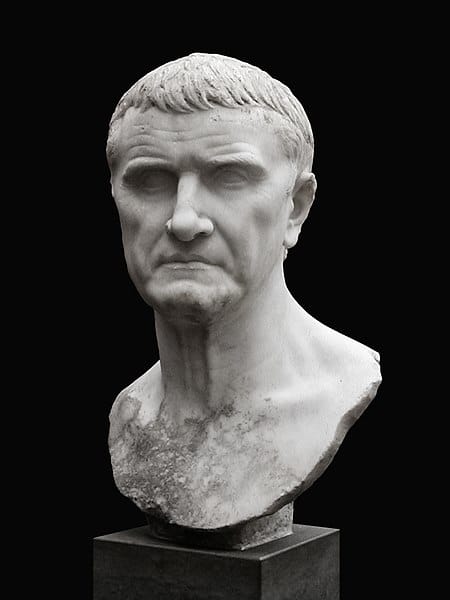
Wealth Origins: Real Estate, Slavery, and War Booty
Marcus Licinius Crassus is often considered the wealthiest Roman, with a fortune so immense that he was known as Dives, meaning – “The Rich.” Crassus was born into a wealthy family, but his father’s death and the subsequent confiscation of their wealth by political enemies meant that Crassus had to rebuild his fortune from scratch.
The Rise to Wealth:
Crassus made his first significant fortune during the proscriptions of Sulla in 82 BC when he purchased the property of condemned citizens at a fraction of its value. However, it was his shrewdness in real estate that truly set him apart. Crassus would buy burning buildings at a low cost, using his own fire brigade to extinguish the flames, and then sell the properties at a high profit. This practice earned him immense wealth, allowing him to purchase vast parts of land throughout Rome.
Crassus also invested heavily in slaves, particularly those skilled in various trades. By employing these slaves in his properties, he maximized their profitability. Additionally, he profited from war booty during his military campaigns, particularly during his time as a general under Sulla.
Interesting Facts:
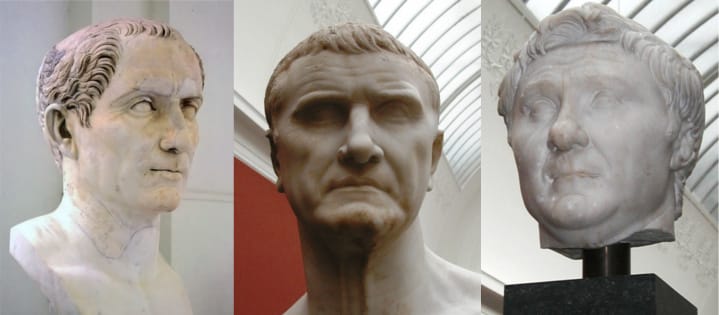
- Crassus was part of the First Triumvirate, along with Julius Caesar and Pompey, a political alliance that dominated Roman politics for years.
- Despite his wealth, Crassus longed for military glory. His desire to match the achievements of his political rivals led him to the ill-fated Parthian campaign, where he was defeated and killed at the Battle of Carrhae in 53 BC. Legend has it that the Parthians poured molten gold down his throat as a symbol of his insatiable greed.
Legacy:
Crassus’ wealth allowed him to exert significant influence over Roman politics, particularly through his support of Julius Caesar. His death, however, marked the end of the First Triumvirate and set the stage for the eventual civil wars that would lead to the fall of the Roman Republic.
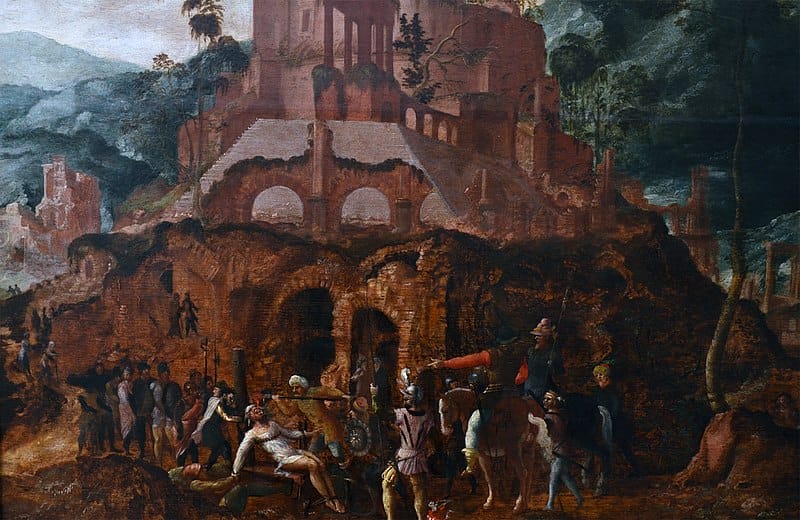
Lucius Licinius Lucullus (c. 118 BC – 57/56 BC)
Wealth Origins: Military Plunder, Administration, and Agriculture
Lucius Licinius Lucullus was a Roman general and statesman renowned not just for his military exploits but also for his immense wealth and luxurious lifestyle. Born into a noble family, Lucullus amassed his fortune primarily through military campaigns in the East, particularly against Mithridates VI of Pontus.
The Rise to Wealth:
Lucullus’ campaigns in Asia Minor, Armenia, and Pontus brought him immense wealth through the plundering of cities, the acquisition of slaves, and the imposition of heavy tribute on conquered territories. As governor of Asia, he managed to stabilize the province’s finances, further adding to his wealth through shrewd tax collection and financial reforms.
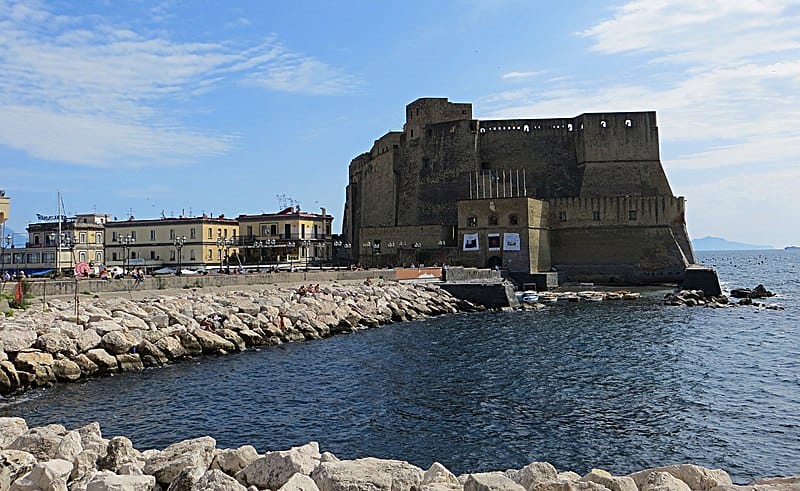
Source: Mister No, CC BY 3.0 https://creativecommons.org/licenses/by/3.0, via Wikimedia Commons
Upon returning to Rome, Lucullus invested his wealth in agriculture, particularly in the cultivation of luxury goods such as fish, fruits, and vegetables. His estates were famous for their innovative farming techniques and the introduction of exotic species to Roman cuisine.
Interesting Facts:
- Lucullus was famous for his lavish banquets, which were so extravagant that the term “Lucullan feast” became synonymous with opulence and luxury.
- He was a patron of the arts and literature, amassing a vast collection of Greek and Roman works in his private library, which he generously made available to scholars.
Legacy:
Lucullus’ wealth and trade had a lasting impact on Roman culture, particularly in the fields of cuisine, horticulture, and the arts. Despite his retirement from public life, his influence continued through his contributions to Roman society and the preservation of Hellenistic culture, making him one of the wealthiest Romans in history.
Gaius Julius Caesar (100 BC – 44 BC)
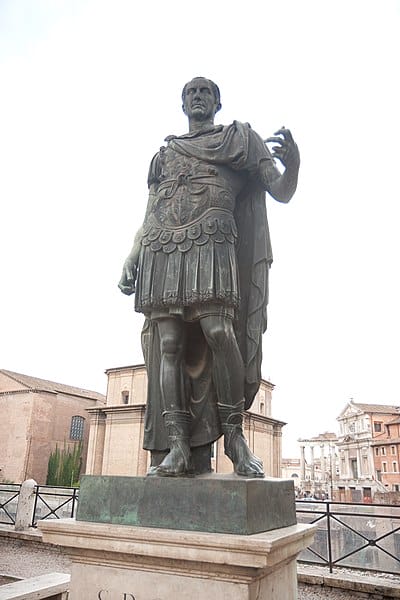
Source: Vadim Zhivotovsky, CC BY 3.0 https://creativecommons.org/licenses/by/3.0, via Wikimedia Commons
Wealth Origins: Military Conquests, Political Power, and Public Offices
Gaius Julius Caesar, perhaps the most famous Roman of all, was not only a military genius and a statesman but also one of the wealthiest individuals of his time. Born into the patrician Julii family, Caesar’s wealth was initially modest, but his ambitions and talents soon propelled him to the upper echelons of Roman society.
The Rise to Wealth:
Caesar’s wealth grew exponentially through his military campaigns, particularly during his conquest of Gaul (58-50 BC). The spoils of war, including vast amounts of gold, silver, and slaves, filled Caesar’s coffers, allowing him to pay off his debts and finance his political career.
As a politician, Caesar held numerous public offices, including consul and dictator, which provided him with further opportunities to enrich himself and his allies. His control over the Roman treasury and his reforms of the tax system also contributed to his immense wealth.
Interesting Facts:
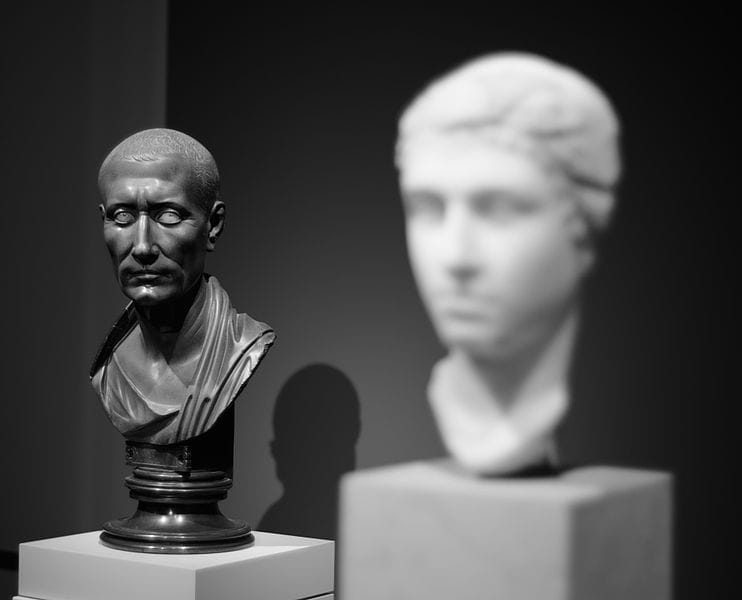
- Caesar was known for his generosity, often using his wealth to gain political support through public games, feasts, and distributions of grain to the Roman populace.
- His affair with Cleopatra VII of Egypt, who was herself immensely wealthy, further solidified his financial and political power.
Legacy:
Caesar’s wealth was instrumental in his rise to power, enabling him to challenge the established order of the Roman Republic. His assassination in 44 BC led to the end of the Republic and the rise of the Roman Empire under his adopted heir, Augustus. Caesar’s influence on Roman history is immeasurable, and his legacy continues to shape the modern world.
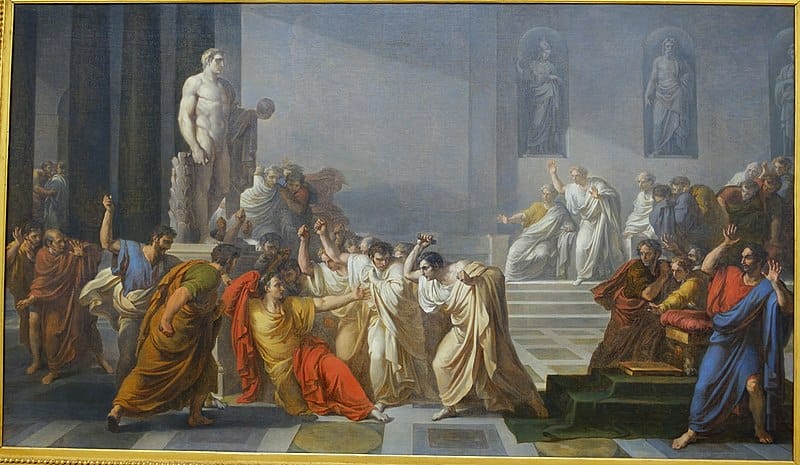
Gnaeus Pompeius Magnus (Pompey the Great) (106 BC – 48 BC)
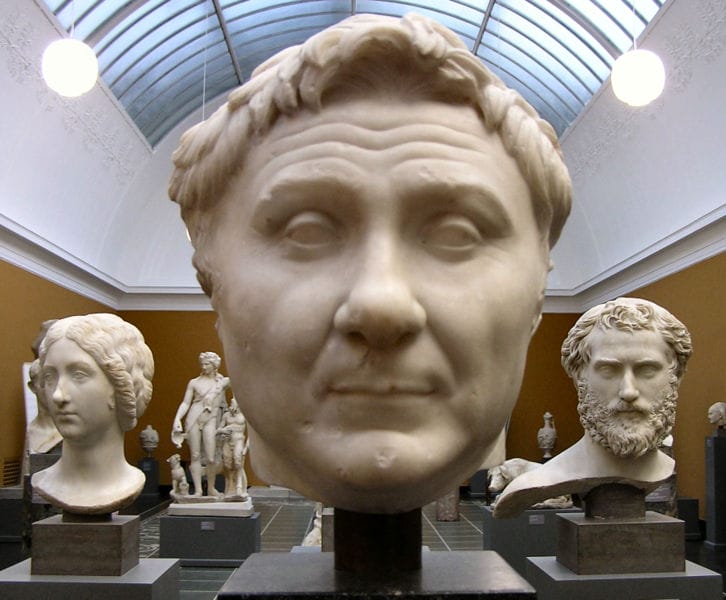
Wealth Origins: Military Success, Land Confiscations, and Political Alliances
Gnaeus Pompeius Magnus, commonly known as Pompey the Great, was one of Rome’s most successful military commanders and a key figure in the late Republic. Born into a wealthy provincial family, Pompey inherited considerable wealth from his father, Gnaeus Pompeius Strabo, a successful general and politician.
The Rise to Wealth:
Pompey’s wealth grew substantially through his military conquests in the East, particularly during his campaigns against the pirates in the Mediterranean, Mithridates VI of Pontus, and the Seleucid Empire. These campaigns brought him immense spoils of war, including vast amounts of gold, silver, and valuable artifacts.
Pompey also accumulated wealth through the confiscation of land from his enemies and the redistribution of these lands to his veterans and allies. His political alliances, particularly his membership in the First Triumvirate, further solidified his wealth and power.
Interesting Facts:
- Pompey was known for his grand triumphs, during which he paraded his spoils of war through the streets of Rome. His third triumph in 61 BC was particularly lavish, featuring an unprecedented display of wealth and prisoners from his Eastern campaigns.
- Despite his wealth and military success, Pompey’s rivalry with Julius Caesar led to his downfall. After being defeated by Caesar at the Battle of Pharsalus in 48 BC, Pompey fled to Egypt, where he was assassinated on the orders of Pharaoh Ptolemy XIII.

Legacy:
Pompey’s wealth and military achievements made him one of the most powerful men in Rome, but his inability to adapt to the changing political landscape ultimately led to his demise. His legacy, however, endures in the annals of Roman history, as a symbol of both the heights of Roman ambition and the dangers of unchecked power.
Marcus Vipsanius Agrippa (c. 64 BC – 12 BC)
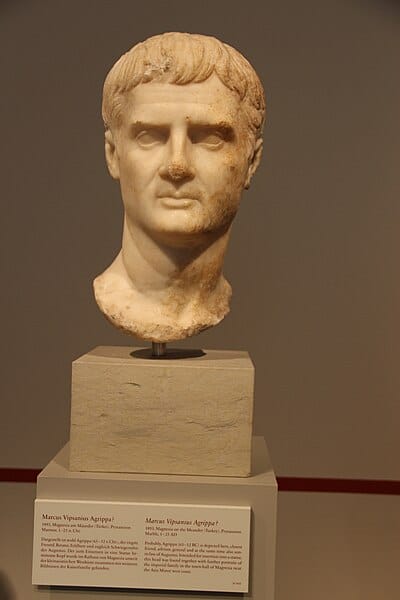
Wealth Origins: Military Command, Imperial Favor, and Architectural Projects
Marcus Vipsanius Agrippa was a close friend and general of Augustus, the first Roman emperor. Although Agrippa was not born into wealth, his military success and close association with Augustus allowed him to amass a considerable fortune.
The Rise to Wealth:
Agrippa’s wealth was largely derived from his military successes, particularly his victory at the Battle of Actium in 31 BC, which secured Augustus’ position as the ruler of Rome. As Augustus’ right-hand man, Agrippa was entrusted with vast resources to carry out the emperor’s ambitious building projects, including the construction of the Pantheon and the Aqua Virgo aqueduct.
Agrippa’s marriage to Augustus’ daughter, Julia, further solidified his position and wealth within the imperial family. He was also granted large estates in various parts of the empire, adding to his already considerable fortune.
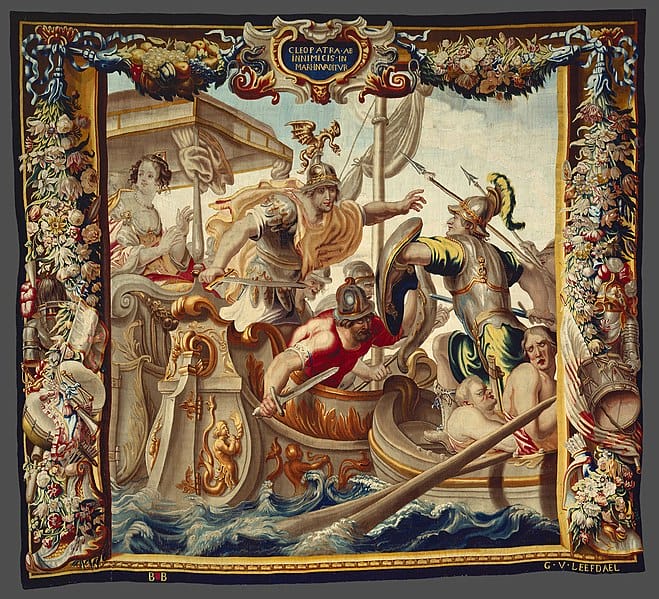
Interesting Facts:
- Agrippa was a key architect of the Pax Romana, a period of relative peace and stability across the Roman Empire, which allowed for economic prosperity and the accumulation of wealth.
- Despite his wealth and influence, Agrippa was known for his modest lifestyle, often living in simpler homes compared to his contemporaries.
Legacy:
Agrippa’s wealth was used to fund many of the architectural and infrastructural projects that defined Augustus’ reign. His contributions to the development of Rome and the consolidation of the Roman Empire left a lasting legacy, both in the physical landscape of the city and in the stability of the empire.
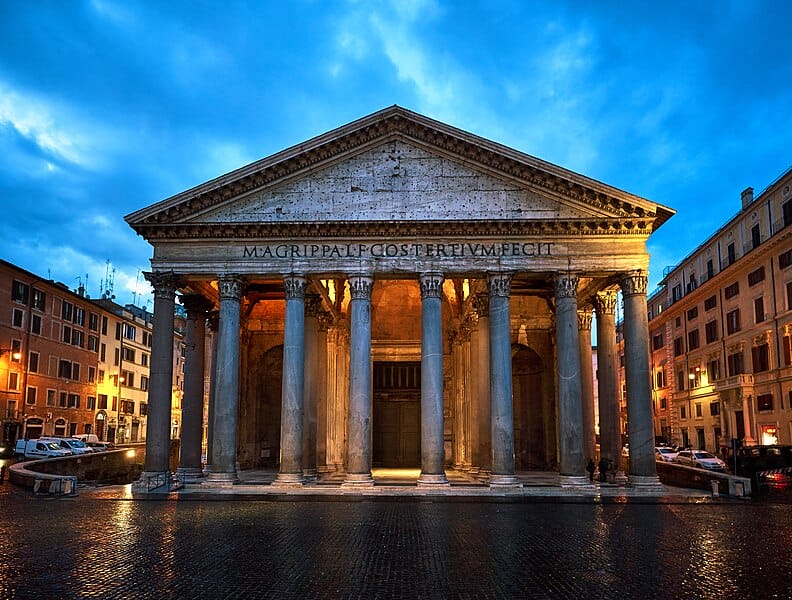
Source: Deensel, CC BY 2.0 https://creativecommons.org/licenses/by/2.0, via Wikimedia Commons
People Also Ask:
Who was the wealthiest Roman?
Marcus Licinius Crassus was a Roman general and statesman who played a key role in the transformation of the Roman Republic into the Roman Empire. He is often called “the wealthiest Roman.” Bust found in the Licinian Tombs in Rome, traditionally identified as Crassus.
Who were the powerful wealthiest Romans?
Sitting at the top of Roman society were the emperor and the patrician classes. Although the wealthiest Romans enjoyed power and privilege, these perks came at a price. As Rome’s leaders, they couldn’t avoid its dangerous power struggles.
Who inherited the wealth of “the wealthiest Roman” – Crassus?
Romans of all classes would lodge wills with the vestal virgins before they went on a campaign so “The wealthiest Roman” would have left his fortune to his sons, although by the time he died, only one son was left – he was serving under Crassus’s good friend Caesar and Caesar would have ensured that the will was honored.
Where did most of the wealthiest Romans live?
For the wealthiest Romans, life was good. They lived in beautiful houses – often on the hills outside Rome, away from the noise and the smell. Wealthiest Romans enjoyed an extravagant lifestyle with luxurious furnishings, surrounded by servants and slaves to cater to their every desire.
Who were the wealthiest Roman families?
Some of the wealthiest Roman families before 100 BC were the Servilii Caepiones, the Fabii Maximi, the Cornelii Scipiones, the Caecilii Meteli (maybe the wealthiest after 130 BC), and the Quinctii Flaminines. After 70 BC, you can include the Licinii Crassi in the list of wealthiest Roman families.
Who was considered the wealthiest Roman?
Patricians were considered the upper class and the wealthiest Romans in early Roman society. They controlled the best land and made up the majority of the Roman senate. It was rare—if not impossible—for a plebeian to be a senator until 444 BC.
Who was the wealthiest Roman, Pompey or Crassus?
Caesar, rich from Gaul and protected by loyal legions, did not need Crassus’s money anymore. Pompey, after a triumph through the streets of Rome parading giant golden statues and his own head in pearls, was probably for a time even richer than Crassus, making him the wealthiest Roman.
Hello, my name is Vladimir, and I am a part of the Roman-empire writing team.
I am a historian, and history is an integral part of my life.
To be honest, while I was in school, I didn’t like history so how did I end up studying it? Well, for that, I have to thank history-based strategy PC games. Thank you so much, Europa Universalis IV, and thank you, Medieval Total War.
Since games made me fall in love with history, I completed bachelor studies at Filozofski Fakultet Niš, a part of the University of Niš. My bachelor’s thesis was about Julis Caesar. Soon, I completed my master’s studies at the same university.
For years now, I have been working as a teacher in a local elementary school, but my passion for writing isn’t fulfilled, so I decided to pursue that ambition online. There were a few gigs, but most of them were not history-related.
Then I stumbled upon roman-empire.com, and now I am a part of something bigger. No, I am not a part of the ancient Roman Empire but of a creative writing team where I have the freedom to write about whatever I want. Yes, even about Star Wars. Stay tuned for that.
Anyway, I am better at writing about Rome than writing about me. But if you would like to contact me for any reason, you can do it at [email protected]. Except for negative reviews, of course. 😀
Kind regards,
Vladimir
